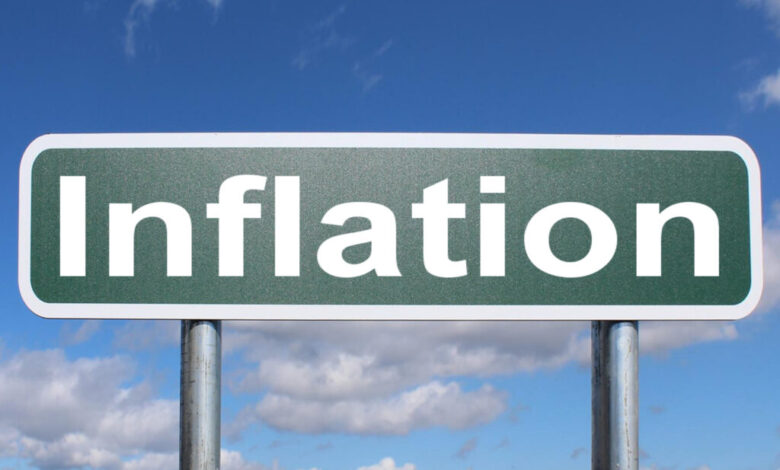Countries With The Lowest Inflation Figures in Africa 2024

For many African countries, maintaining low inflation is a cornerstone of economic stability and growth. With numerous nations on the continent categorized as low-income, the advantages of low inflation cannot be overstated.
When inflation rates are kept in check, these countries can avoid the harsh economic challenges that come with severe inflationary pressures.
Let’s dive into the numerous benefits of low inflation and highlight the African nations leading the charge with the lowest inflation rates in 2024.
Why Low Inflation Matters
Economic Stability and Confidence
Low inflation fosters an atmosphere of economic stability. When prices of goods and services remain relatively stable, businesses and consumers can plan for the future with greater confidence.
This consistency minimizes market uncertainty, thereby boosting both domestic and international investment.
Investors are more likely to commit their resources to an economy where they can predict returns without the fear of inflation eroding their profits.
Protection of Wages and Savings
Inflation erodes the value of money over time. When inflation is low, wages and savings maintain their value, allowing people to preserve their purchasing power.
This is particularly crucial in regions where poverty and income inequality are prevalent. By safeguarding the economic welfare of the vulnerable population, low inflation helps maintain a higher standard of living.
Encouragement of Long-Term Growth
Low inflation rates pave the way for long-term growth and development. When a country’s inflation is under control, it creates a favorable environment for economic activities.
Businesses can thrive, consumers can spend, and governments can plan better for infrastructural development.
Challenges of High Inflation
Fighting high rates of inflation has been a persistent problem for many African nations. High inflation affects several aspects of an economy, from the devaluation of currencies to the increased cost of living.
When prices rise uncontrollably, it creates an unstable economic environment, making it difficult for businesses to operate efficiently and for consumers to afford basic goods and services.
Also Read: Countries with the Highest Minimum Wage in Africa
Countries with the Lowest Inflation in Africa 2024
According to a report by the African Development Bank (AfDB), some African countries have managed to maintain impressively low inflation rates. Let’s take a closer look at these nations:
1. Seychelles – 1.4%
Seychelles leads the pack with an inflation rate of just 1.4%. This stability is largely due to the country’s strong economic policies and effective management of external shocks.
2. Djibouti – 1.7%
Djibouti follows closely with an inflation rate of 1.7%. The country has benefited from strategic investments and a stable macroeconomic environment.
3. Mali – 2.0%
Despite facing significant challenges, Mali has managed to keep its inflation rate at 2.0%. This is a testament to the resilience of its economic policies.
4. Burkina Faso – 2.1%
Burkina Faso has maintained an inflation rate of 2.1%, thanks to prudent fiscal management and agricultural productivity.
5. Benin – 2.2%
Benin’s inflation rate stands at 2.2%, reflecting its stable economic growth and effective inflation control measures.
6. Cabo Verde – 2.2%
Cabo Verde, like Benin, enjoys an inflation rate of 2.2%, benefiting from its strategic location and economic policies.
7. Gabon – 2.5%
Gabon’s inflation rate of 2.5% can be attributed to its robust economic framework and natural resource management.
8. Togo – 2.7%
Togo has managed to keep inflation at 2.7%, supported by structural reforms and increased agricultural output.
9. Comoros – 3.1%
Comoros, with an inflation rate of 3.1%, has shown remarkable economic resilience and stability.
10. Tanzania – 3.3%
Tanzania rounds out the list with an inflation rate of 3.3%, benefiting from consistent economic policies and growth.
The Role of Effective Economic Policies
The success of these countries in maintaining low inflation rates highlights the importance of effective economic policies.
These nations have implemented strategies that control inflation while promoting growth, such as prudent fiscal management, investment in key sectors, and structural reforms.
Conclusion
Low inflation is more than just a number; it’s a vital component of economic health and stability. For African countries, maintaining low inflation rates is crucial for fostering long-term growth, protecting wages and savings, and attracting investment.
The countries leading the charge with the lowest inflation rates in 2024 showcase the benefits of sound economic policies and effective inflation control measures.





